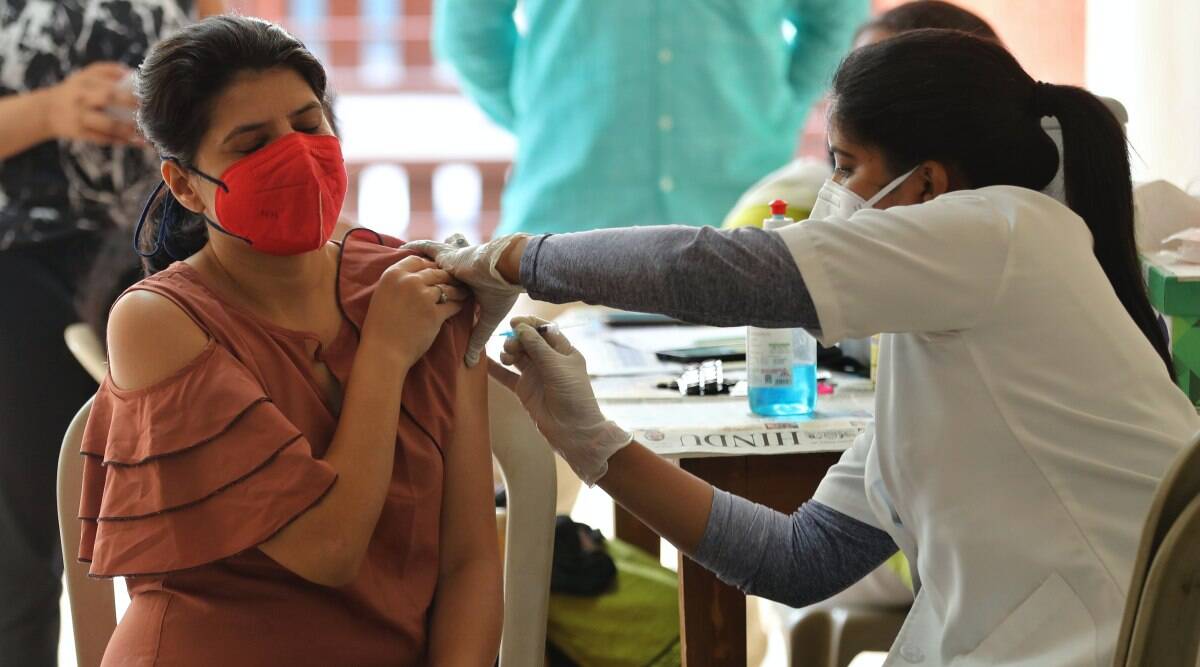The Centre liberalised the coronavirus vaccination strategy to allow states, private hospitals and industrial establishments following requests from nearly all states and to unleash the “combined effort of Team India” to inoculate every adult in the earliest possible time, Union Health Minister Harsh Vardhan said on Sunday.
In a four-page statement posted on his Twitter handle, the minister defended the new strategy under which everyone above 18 years of age will be vaccinated against COVID-19 from May 1 and hit out at those political leaders indulging in “needless politics” on the matter and spreading misinformation.
Shared idealism is the need of the hour !
Politics around the world’s #LargestVaccineDrive needs to end, for the sake of our citizens.
Here’s clarifying all aspects of upcoming phase 3 of our #Covid19Vaccination drive, putting all speculations to rest.https://t.co/RsdBUrkmMe pic.twitter.com/Mjoku3Bt4Y
— Dr Harsh Vardhan (@drharshvardhan) April 25, 2021
Vardhan said he sees no reason why the states must complain now as they were demanding removal of restrictions on vaccine supplies to them.
The new strategy gives states one guaranteed channel of free vaccine supply from the Centre, while they can simultaneously procure vaccines directly from manufacturers for which they can negotiate prices based on volumes, he said.
Under the third phase of the national vaccination drive commencing next month, the vaccine manufacturers would supply 50 per cent of their monthly Central Drugs Laboratory (CDL) released doses to the central government and would be free to supply the remaining 50 per cent doses to state governments and in the open market.
In his statement, Vardhan said multiple states like Assam, Uttar Pradesh, Madhya Pradesh, Bihar, Maharashtra, Jharkhand, Jammu and Kashmir, Tamil Nadu, Himachal Pradesh, Kerala, Chhattisgarh, Haryana, Kerala, Sikkim, West Bengal, Telangana and Andhra Pradesh have already announced that they will inoculate those between the ages of 18 and 45 against the coronavirus free of cost.
This is a welcome decision and under the new liberalised policy, they have the full freedom to do this, he said.
Presenting some “pertinent” points in the public domain “to scotch the attempts by some vested interests who are trying to derail the biggest vaccination drive of the world”, Vardhan said under the new policy, even after the launch of the third phase of vaccination starting May 1, the Government of India’s pricing shall continue for the free distribution bracket.
Just as before, the Centre will continue giving vaccine doses from its 50 per cent quota to the states and union territories for free. These vaccines shall continue to be administered by states and UTs.
“Several questions are being raised on the balance 50 per cent quota and what it means. That is why I have chosen to clarify here that this balance 50 per cent quota grants flexibility for states.
“Many states had requested that the vaccination process be opened up for them. Now, this ‘balance 50 per cent quota’ shall give them the freedom to vaccinate groups that they deem as priority,” Vardhan said.
“It is a fact that health is a state subject, where the Centre essentially coordinates and facilitates the states. After we received requests from nearly all states to liberalise the vaccine distribution policy and pass on the control to the states, we decided to go ahead,” he said.
The balance 50 per cent quota is also open for the corporate and private sector to “pool in their resources so that the combined effort of Team India can be deployed to vaccinate every adult in the earliest possible time,” he underlined.
Undoubtedly, Vardhan said, the private and corporate sector route will empower a large number of people to get themselves quickly vaccinated outside the government route. In essence, those who can afford to get them at the private and corporate sector rates shall go ahead, he stated.
“The states, therefore, as per their own priority and commitments, have to vaccinate only those remaining people who have not been administered vaccines either through the GOI free route or through the private route. It is thus important to note that for the common people at large, there is and will always be an option to get vaccinated for free, to ensure that the price of vaccines does not become a burden for them,” he said.
Vardhan reiterated that the Centre does not give vaccines directly to anyone. The 50 per cent quota of the Centre is for free distribution through the states only.
“Hence the allegation that Centre is getting it cheap and States are not is patently false,” he said.
Vardhan said he sees no reason why the states must complain now as they were demanding removal of restrictions on vaccine supplies to them.
“Under the new policy, they have the liberty to directly procure from the manufacturers and even negotiate prices based on volumes. This will also cut the delays. I empathise with the states because they are leading this battle from the front and need fast replenishment of vaccine stocks. They need to decide when, how, how much and to whom. This is exactly what the Centre has done by easing the process,” he underlined.
Stating that certain political leaders who have chosen to indulge in needless politics on the matter and are spreading misinformation at every step, whether it is about the efficacy or about pricing of vaccine, he appealed to these political parties to put the success of vaccination programme above everything else so that “we may save the lives of our people”.
The health ministry earlier said that vaccine manufacturers would have to make an advance declaration of the price for the 50 per cent supply that would be available to the state governments and in the open market before May 1.
Bharat Biotech has fixed the price of its COVID-19 vaccine, Covaxin, at Rs 600 per dose for state governments and at Rs 1,200 per dose for private hospitals. Serum Institute of India has announced a price of Rs 400 per dose for “Covishield” for states and Rs 600 per dose for private hospitals. Both vaccines will be available to the central government at Rs 150 per dose.




